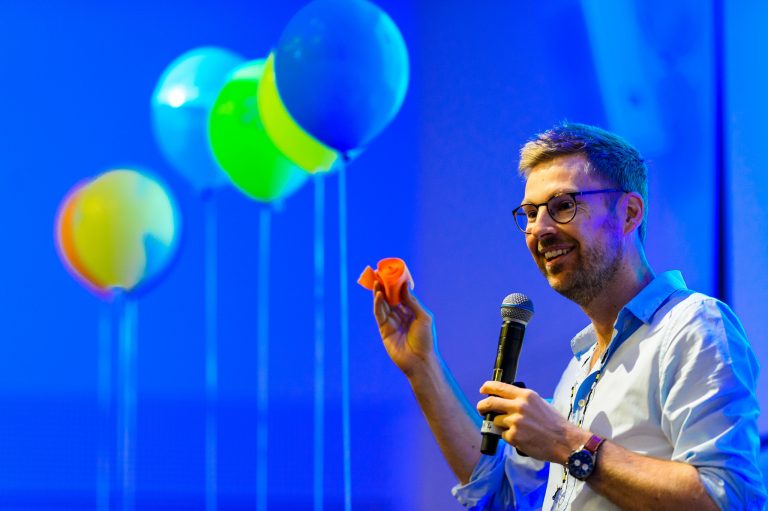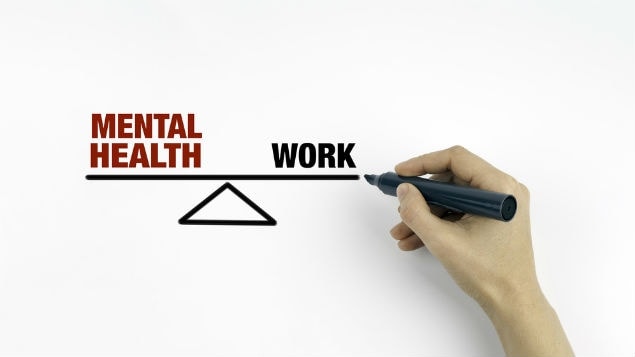Q&A with Nick Saclley
Nick Saclley, National General Manager of Construction at Watpac joined us for a deep-dive interview about the construction industry and the challenges he faces as a leader in such a tough environment.
- What gives you the most meaning at work?
I’ve been in the industry for 33 years (29 at Lend Lease and 3.5 at Watpac). What I like most is how I can influence change and the direction of an organisation in a very challenging industry like construction. I enjoy autonomy, the freedom to move and having the authority to make a difference.
2. What project have you been involved in which has given you the most satisfaction, and why?
The standout project was working as the Development Manager for a joint venture involved with Lend Lease and News Corp, called Fox Studios Australia. I was responsible for the theme park component. Ultimately it was a failed development, that is, the development never achieved what it was meant to achieve, but I took charge of delivering the development and getting the theme park opened.
It was a stand-out because I was one of two people from Lend Lease working on it, everyone else on the team were contractors or consultants from the entertainment industry, notably Baz Luhrmann.
Applying my project management disciplines on how to move forward efficiently and making informed decisions was quite refreshing because I was dealing with a diverse bunch of people.
3. What advice would you give ambitious employees in your business?
- For younger employees, remember to listen and ask questions, but ultimately be a sponge. Look to learn from leaders and a diverse range of people.
- For the more senior employees, never lose the ability to listen, but there’s a greater expectation and need to contribute and debate.
- What has been the biggest game-changer you’ve seen in the construction industry?
The construction industry is a big industry. It has become very diverse and grown too quickly, therefore becoming diluted. With this comes a high level of incompetence and lack of deep experience as decision-makers are out of their depth. Everyone wants to be opportunistic to service clients, however it’s based on thin capability and experience. There needs to be an improvement in expertise.
The game-changer is through proper pre-planning, particularly the design side of every project. If you can control the pre-planning, control the design process, and link it to efficient cost planning and time management, coupled with decisions being made based on true metrics, then everyone from client to contractor will enjoy a better relationship and project outcome.
In addition to this, there needs to be an improvement in client relationships. This needs to be based on trust and respect. Clients want to hear what they want to hear. There are a lot of ‘yes’ men because they want to win work and capitalize on opportunity. The client may be happy based on this, but it’s not what they need to hear. The only way a client will compromise on aspiration is if they trust you.
- If you could change anything (with a magic wand), what would it be?
If I could get people to be more self-aware and have an appreciation of the consequences of the power of words, that would be great. I believe that leadership casts a long shadow and I think a lot of people in these positions don’t realise this. Emotional intelligence (EQ) is so important.
- How do you find mentors in your industry?
We run a mentor program at Watpac and encourage people to find one within the business. Everybody needs a mentor, starting with a buddy for the junior burgers which allows the transfer of IP and provides guidance – it works quite well.
Personally, I seek out people to talk to and become friends with people that inspire me. I enjoy the conversation because that’s how I think, through talking, so I need an outlet and use them as a sounding board. I also focus on industry folk, so I don’t have to give too much context.
- Mental health is big in the construction industry, what’s your views and how do you manage it?
Stress is born out of the pressure of doing projects where there’s constraints to be finished on time and within budget. There’s always a sense that there’s not enough people to do the job, so they’re overloaded. But the other thing that comes up is the blokiness of the construction industry, and males tend not to speak up. There’s obviously a lot of things which are in play, and it seems our industry is bringing out the worst for people.
Therefore, diversity is key to have a balance of different types of people to break cliché behaviors and attitudes in the industry. Listening skills are essential and making sure management has enough EQ to understand what’s going on in their teams. It’s a leadership issue as they’re responsible for the wellbeing of their people.
At Watpac, we offer helplines and comms programs to raise awareness and generate conversation about mental health. We also offer a wellbeing day which consists of one day off every four months. It’s pitched as a ‘day for themselves’ and not to add to their current holidays.
Mental Health has always been there, it’s a little more in the headlines thesedays because there’s a greater awareness of it, but nothing has changed, and it’s not worse, probably people were blissfully unaware back in the day.
- There’s a known talent shortage, how do you attract the best talent?
It’s almost a catch-22, you must be competitive in terms of pay, but as most people understand, pay isn’t the piece that people are inspired by. It’s certainly has a role to play, but from my experience people rarely leave for money, there’s always other issues.
At Watpac, the best way to attract talent is through having a diverse range of projects, where people can enjoy a diverse career. If you only did one type of project, it limits the attractiveness of the role. Employees want to work on a variety of projects, with a variety of people, be challenged and enjoy a steep learning curve.
They also want to feel valued, having a good connection and access to the leadership team. Be listened to in terms of their personal development plan and what training elements need to be factored into this for growth.
9. What’s your desired legacy?
Watpac is in a unique position to be something special. It has a thin organization structure which means we can have conversations easily. The challenge is, can we grow the business and not lose the attributes that makes us so special? Essentially, we’re in a people’s business, just in construction. All contractors are fishing from the same pond, so we need to differentiate ourselves.
My legacy is having an organisation that understand the value proposition and appreciation of the market. If I leave and the business moves back to where it was, I have failed. It must be sustainable.
I also want to ensure good succession planning and that our vision of, ‘building futures’ is carried through. Everything needs to cascade from that, so if and when I do leave, the business will prosper and grow.
10. What do you enjoy doing on the weekend?
I live in one of the coolest cities in the world, Sydney. I’m pretty cliched, I love good food, people and conversations. I have a huge appreciation for the waterside, so getting on my boat and meeting up with friends at a café is heaven for me. It’s a sensational distraction.





